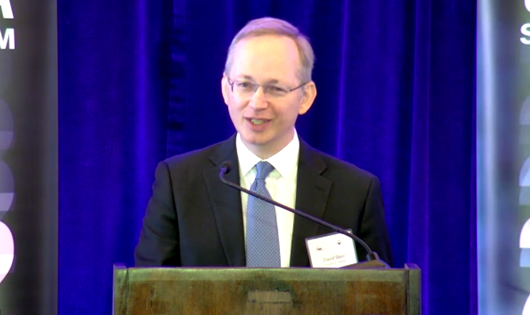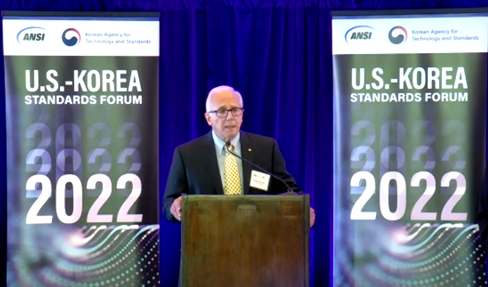-
News
August 31, 2022
UL Standards for Clean Energy Highlighted at US-Korea Standards Forum

Steel delivered the presentation, “Clean Energy Through UL Standards: Pathway to Net Zero,” in which he discussed how UL standards can help promote clean energy technology and create a sustainable pathway to achieve net zero carbon emissions globally. In his presentation, he highlighted UL standards that are helping to drive the safe development of technology and processes in each stage of the complex energy value chain – from generation, transmission and distribution, to storage, use, and repurposing of equipment. Standards highlighted in the presentation include UL 9540, the Standard for Energy Storage Systems and Equipment, and UL 9540A, the Standard for Test Method for Evaluating Thermal Runaway Fire Propagation in Battery Energy Storage Systems, as well as UL 1974, the Standard for Evaluation for Repurposing Batteries, which provides requirements for the sorting and grading process of electric vehicle batteries that are intended for repurposing.

Other speakers included leaders from standards organizations such as the International Code Council (ICC), along with stakeholders from government, academia, and industry.
The annual event, which began in 2021 as an avenue to explore collaboration opportunities in standardization between the U.S. and South Korea, was presented in a hybrid format that accommodated both virtual participants and in-person attendees.